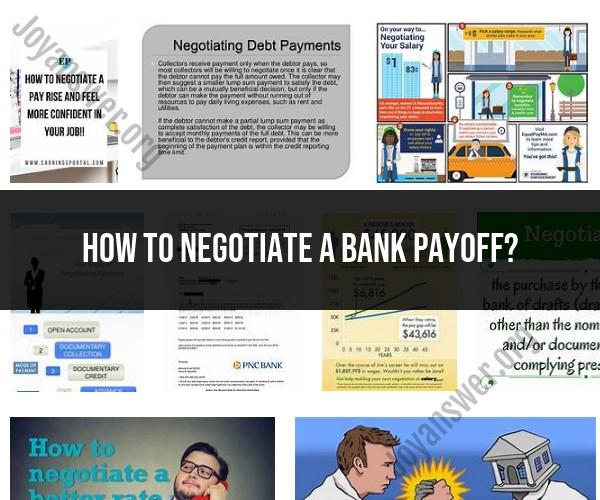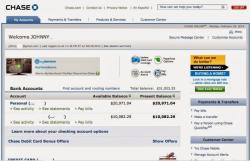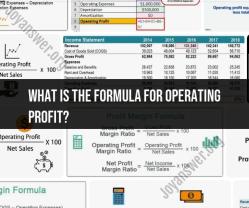How to negotiate a bank payoff?
Negotiating a bank payoff, also known as a settlement, can be a complex process. It typically involves reaching an agreement with the bank to pay off a debt for less than the full amount owed. Here are some tips and strategies to help you negotiate a bank payoff:
1. Assess Your Financial Situation:
- Before negotiating, thoroughly review your financial situation. Determine what you can realistically afford to offer as a lump-sum payment to the bank. Having a clear understanding of your finances is crucial.
2. Open Communication:
- Initiate contact with the bank or the collection agency that holds your debt. Be proactive and open in your communication. Explain your circumstances, including any financial hardships that have led to your inability to pay the full debt.
3. Understand the Debt:
- Gather all relevant information about the debt, including the current balance, interest rates, and any associated fees. Make sure you have accurate and up-to-date records.
4. Offer a Lump-Sum Payment:
- In most cases, banks are more willing to negotiate if you can offer a lump-sum payment, even if it's less than the total amount owed. Determine the maximum amount you can reasonably afford to pay.
5. Start Low:
- When making your initial offer, consider starting with a lower amount than you're ultimately willing to pay. This gives you room to negotiate upwards if necessary.
6. Be Persistent and Patient:
- Negotiating with a bank can be a time-consuming process. Be prepared for multiple discussions and negotiations. Be persistent but also patient as you work through the process.
7. Get It in Writing:
- Once you and the bank agree on a settlement amount, request a written agreement that outlines the terms of the settlement. This agreement should include the agreed-upon payoff amount, payment due date, and confirmation that the debt will be considered settled.
8. Be Prepared to Negotiate:
- The bank may counter your initial offer or propose alternative terms. Be flexible and willing to negotiate further to reach a mutually acceptable agreement.
9. Seek Professional Advice:
- If you're unsure about how to negotiate with the bank or if the debt is particularly complex, consider seeking advice from a credit counselor or a debt settlement professional. They can provide guidance and negotiate on your behalf.
10. Understand the Tax Implications:- Settlements for less than the full amount may have tax consequences. Consult a tax advisor to understand the potential tax implications of a settlement.
11. Consider Legal Counsel:- If you're dealing with a particularly challenging debt situation, it may be advisable to consult an attorney who specializes in debt negotiation and settlement.
12. Maintain Records:- Keep detailed records of all communications and agreements with the bank throughout the negotiation process. This documentation can be essential if any disputes arise later.
13. Stick to Your Agreement:- Once you reach an agreement with the bank and make the agreed-upon payment, ensure that you fulfill your end of the bargain promptly and as specified in the written agreement.
Negotiating a bank payoff can be a challenging process, but it's often possible to reach a mutually beneficial resolution. Being well-prepared, open in your communication, and willing to work with the bank can increase your chances of successfully negotiating a settlement that works for both parties.













